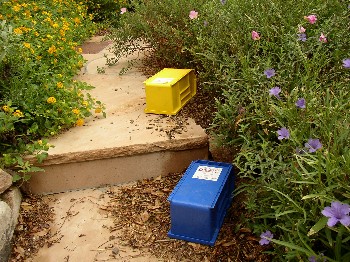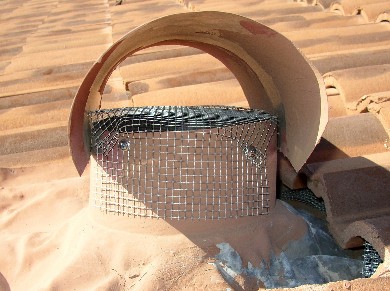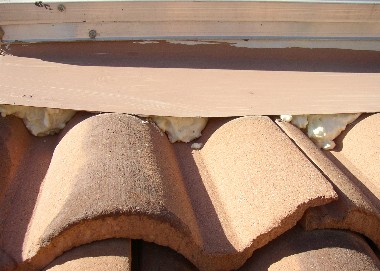Rodent Services
Rodent Control:
Premier has a tried and true strategy for rodent control. Specifically Packrats and mice. We use Victor snap traps that are designed for professional pest management use.
We have found over years of experience that the best results are achieved by careful attention to the following things: First a thorough inspection of the entire property to determine where and how much rodent activity is occurring. Then care is taken to set traps in areas where there is evidence of recent rodent activity such as fresh droppings, gnawings, rub marks, nests and burrows or urine stains. And finally, if there are areas where rodents are gaining entry into a building, shed, BBQ, pool heater, or any other structure, we take the necessary steps to eliminate those entry points. This can sometimes be simply accomplished by screening the area with hardware cloth.
Other times it requires us to be more creative, maybe with the use of expansion foams or other sealing materials.
A key point to remember is that rodent control is very much like insect control in the respect that it is almost always an ongoing maintenance issue. They are out in the desert continually reproducing. This means that new rodents may come back at some point in the future and re-infest an area. Sometimes even chewing through entry points that have been previously repaired. Frequent inspections and periodic trapping by Premier is all the protection you need to prevent this from happening.
WHY BAITING FOR RODENTS ISN'T ALL IT'S CRACKED UP TO BE...
1. Packrats are true to their name; they pack things away. Just because the bait packet or box put out yesterday is empty today does not insure a dead rodent. They stash it away in their nest for months sometimes years. In addition, they may have found something more interesting on the way back to their nest - and spit out the bait. Now the bait could be in an exposed area where other non-target animals or pets may come across it.
2. Most commonly used rodenticides today are anti-coagulants. The antidote for anti-coagulant poisoning is vitamin K. This vitamin is readily used in pet and large domesticated animal foods. Rats and mice are nibblers (eating several times a day). If pet food is available (maybe from the neighbor's outdoor dog dish!) it's more than likely that the antidote in the food is canceling the bait mode of action. Now they're being supported instead of eliminated.
3. It is not true that they eat the bait and search for water. They do what every other sick animal does - looks for a comfy, safe place to feel better. If that comfy place has been in the attic of your home, crawl space, car trunk, box in the garage - that's where they'll kick the bucket. Mice aren't too bad, but a rat will be stinky for quite a while.
4. With rodenticides you dont often find the dead culprit to verify the procedure is working. With properly baited and positioned snap traps, if something's in the trap you know it's working.
5. Rodenticides have primary poisoning (something eats the bait) and secondary ( something eats the something that ate the bait) either way it's curtains. The same applies to humans and pets. Having a pet bleed to death or having a grandchild require intravenous vitamin K is no fun. In addition, the anti-coagulant rodenticides used today cause more bleeding because they have longer retention time in the body. This means the treatment will take longer as well. Hospital stays for people and pets aren't getting any cheaper.
6. Rodents pass some of the poison through their feces. This is why sometimes "blue-poo" might be mixed with regular droppings. (Baits are blue or green) If your dog is so inclined, slight poisoning can occur whilst enjoying these little delicacies. In studies done in the UK with sheep, anti-coagulants were still found in the liver 128 days after one feeding of 12 milligrams to a 100 lb. sheep. Not enough to do the sheep in, but think about the extra work the liver had to do to clean itself out and possible long term affects.
7. Last, but certainly not least, let's talk about our wonderful desert wildlife - the hawks, owls, coyotes, turkey vultures, good snakes, bobcats and other predators that count on rats and mice as a primary food source. Poisoned rodents could be their last meal. Ground birds with much lower body weights than rats like quail and doves are susceptible, too.
It's easy to reach for a box of bait but it is not as successful, predictable or as safe as a covered snap trap. When droppings, misplaced foliage (a cholla on your back porch, chewed plant) or noises begin, take a second to make sure it's a rodent. Then call Premier!


















 Our technicians have up-to-date knowledge of techniques available for use in treating your home and business and will create customized treatment and maintenance programs for each customer!
Our technicians have up-to-date knowledge of techniques available for use in treating your home and business and will create customized treatment and maintenance programs for each customer!